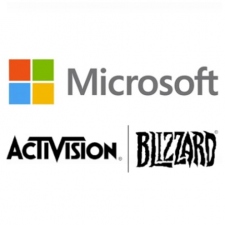Microsoft’s attempt to acquire Activision Blizzard has been one of the biggest stories in the world of gaming since the deal’s initial announcement in January 2022. At $69 billion, the deal would be the largest in gaming history, but its enormity quickly saw the acquisition come under fire from competitors and regulators alike.
The UK’s Competitions and Markets Authority (CMA) is one regulator which has found particular issue with the deal, and how it could affect both competitors and consumers. Despite initially investigating the deal due to their concerns with how it could affect competitor Sony, they eventually blocked the deal based on the potential advantage the acquisition would give Microsoft in cloud gaming, noting that “allowing Microsoft to take such a strong position in the cloud gaming market just as it begins to grow rapidly would risk undermining the innovation that is crucial to the development of these opportunities.”
Microsoft and Activision Blizzard appealed the decision, eventually leading to Microsoft selling its cloud gaming rights to rival Ubisoft, and it appears that the CMA has been convinced, releasing a statement today announcing that “Microsoft has put forward remedies which the CMA has provisionally concluded should address these issues,” offering its provisional approval of the deal.
“In contrast to the original deal, Microsoft will no longer control cloud gaming rights for Activision’s content, so would not be in a position to limit access to Activision’s key content to its own cloud gaming service or to withhold those games from rivals. Unlike the remedies the CMA previously rejected, Ubisoft will be free to offer Activision’s games both directly to consumers and to all cloud gaming service providers however it chooses, including for buy-to-play or multigame subscription services, or any new model for providing content that might emerge as the market develops.
“The deal with Ubisoft also requires Microsoft to port Activision games to operating systems other than Windows and support game emulators when requested, addressing the other main shortcoming with the previous remedies package.”
Mobile is King
Despite regulators worldwide focusing on console, PC, and cloud gaming, they’ve historically overlooked one key factor - that Microsoft has long claimed that mobile is the key reasoning behind the acquisition, with Google opposing the deal due to its concerns that Microsoft could make King titles exclusive to its own app store.
While console and PC are no doubt important to the deal - Microsoft’s agreement to sell its cloud gaming rights to finalise the deal follows its refusal to simply cut Activision Blizzard out of the equation by purchasing mobile subsidiary King independently - the fact remains that the implications of the deal on the mobile space have too often been overlooked.
With the CMA offering its provisional approval for the deal, it’s seemingly only a matter of time before the long-running saga comes to a conclusion, and mobile seemingly being at the heart of the biggest gaming acquisition of all time could have big implications for future deals of this scale. After all, all of the largest PC and console developers are growing increasingly concerned with making inroads into mobile gaming, and as such multi-platform developers with robust presences on the platform are likely to be attractive acquisition prospects.
We listed Activision Blizzard as one of the top 50 mobile game makers of 2023.






















